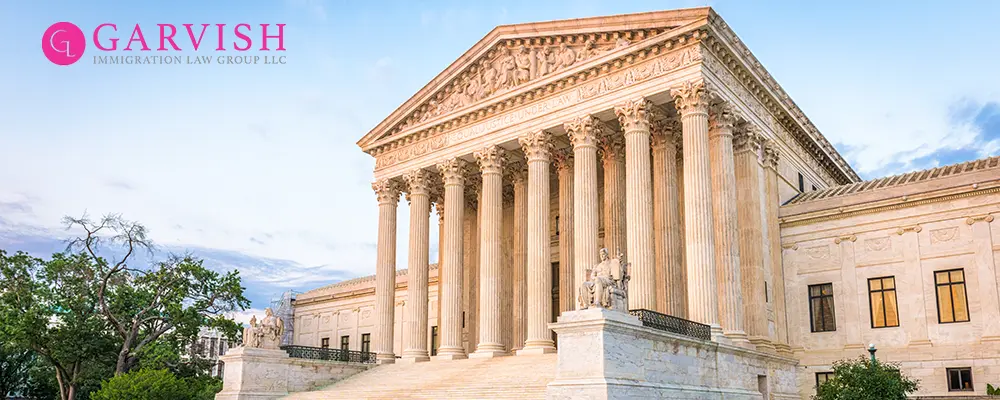On December 10th, The Supreme Court ruled in Bouarfa v. Mayorkas that the Secretary of Homeland Security’s decision to revoke a previously approved visa petition is a discretionary act under 8 U.S.C. §1155 and, therefore, not subject to judicial review under §1252(a)(2)(B)(ii). The case arose when the petitioner, Amina Bouarfa, challenged the revocation of her husband’s visa petition after the agency determined he had previously entered a sham marriage. The Court emphasized that the statute grants broad discretion to the Secretary, allowing revocation “at any time” for “good and sufficient cause” without specific criteria limiting that authority.
This decision has significant implications for immigration cases involving visa petition revocations. It reaffirms that the courts lack jurisdiction to review agency decisions deemed discretionary by Congress, even when those decisions are based on findings like sham marriages. For petitioners, this ruling highlights the importance of ensuring sound initial approvals and underscores the limited avenues for judicial recourse when approvals are later revoked. Immigration attorneys and their clients must navigate these cases carefully, as agency determinations carry immense weight and little room for challenge.
The Supreme Court’s recent opinion tackled a critical question that resonates far beyond the courtroom. At its core, the case highlights how seemingly small procedural or legal details can have enormous consequences for individuals and institutions alike. The Justices carefully examined the facts, shedding light on broader issues of fairness, accountability, and the delicate balance of power. It’s a reminder that the law is not just about rules—it’s about real lives, real struggles, and real outcomes that ripple through families, communities, and systems.
The Court rejected arguments that the agency’s findings—such as determining a “sham marriage”—should be subject to judicial review. It explained that the statutory text does not impose specific limits or standards on what constitutes “good and sufficient cause,” leaving such determinations entirely within the agency’s judgment. By affirming this position, the Court stressed that its role is not to rewrite statutes or impose its own standards of fairness where Congress has explicitly delegated authority to the executive branch. This principle, the Court argued, preserves the separation of powers and respects the balance Congress struck between agency discretion and judicial oversight.
In my work as an immigration attorney, I see this truth daily. A single decision can change a client’s life forever, just as this ruling will influence countless others. What stands out to me is the importance of showing up, digging into the details, and trusting in the process—even when the path forward feels uncertain. In the end, the law, like life, requires clarity, courage, and a belief that even the most challenging circumstances can lead to meaningful change.
This ruling is a powerful reminder that immigration law leaves little room for error, especially when agency discretion is involved. If you or your loved ones are navigating the visa petition process, it’s more important than ever to consult with a trusted immigration attorney. The stakes are high, and having expert guidance can make all the difference. Be open, honest, and transparent with your attorney—every detail matters. By working together, building a strong case from the start, and anticipating challenges, you can maximize your chances of success. In immigration, preparation and partnership are everything. Don’t leave it to chance—show up, trust the process, and let an experienced attorney help light the way forward.
About the Author
Elizabeth Garvish
Elizabeth L.A. Garvish founded Garvish Immigration Law Group, LLC in 2011 after practicing immigration law in small boutique firms, big law and nonprofits. Elizabeth is a frequent speaker and presenter on entrepreneurship and U.S. immigration topics around the world. She is an active member of the American Immigration Lawyers Association (AILA) and serves on various national committees and is the Past Chair of the Georgia-Alabama Chapter of AILA. Elizabeth is also a certified member of the EO Global Speakers Academy.






